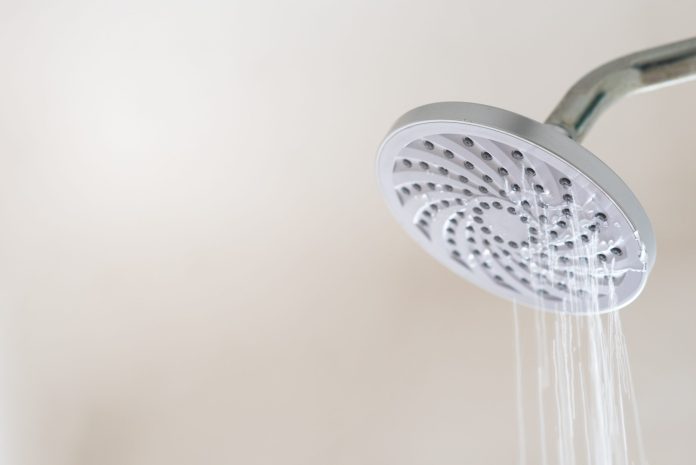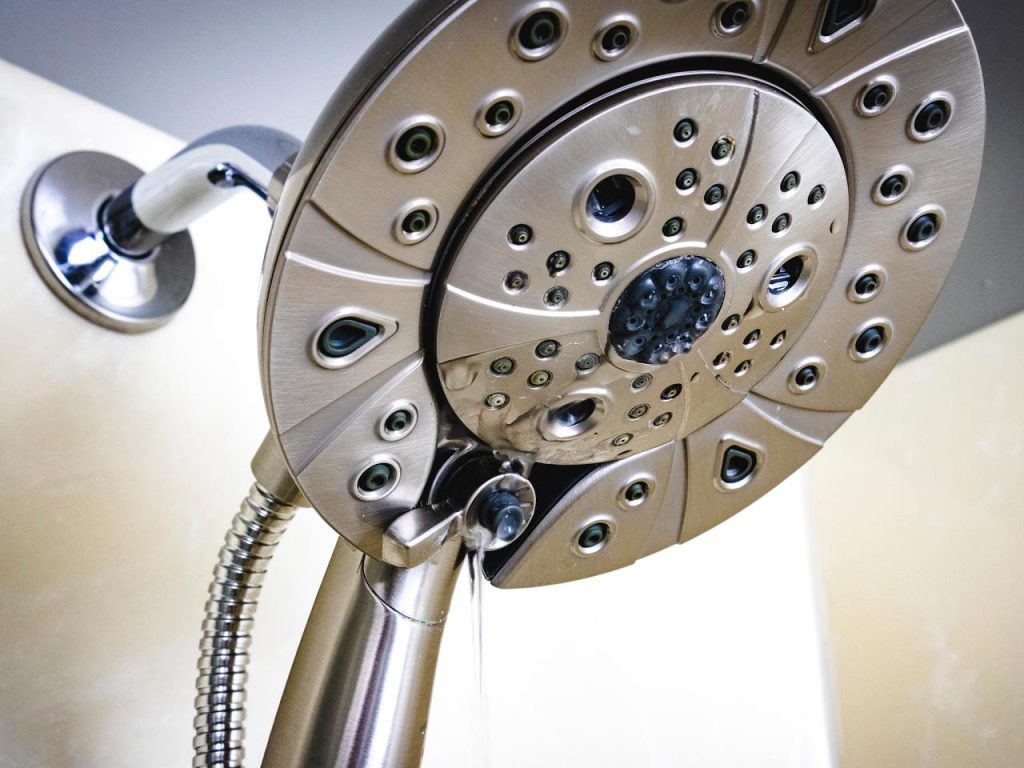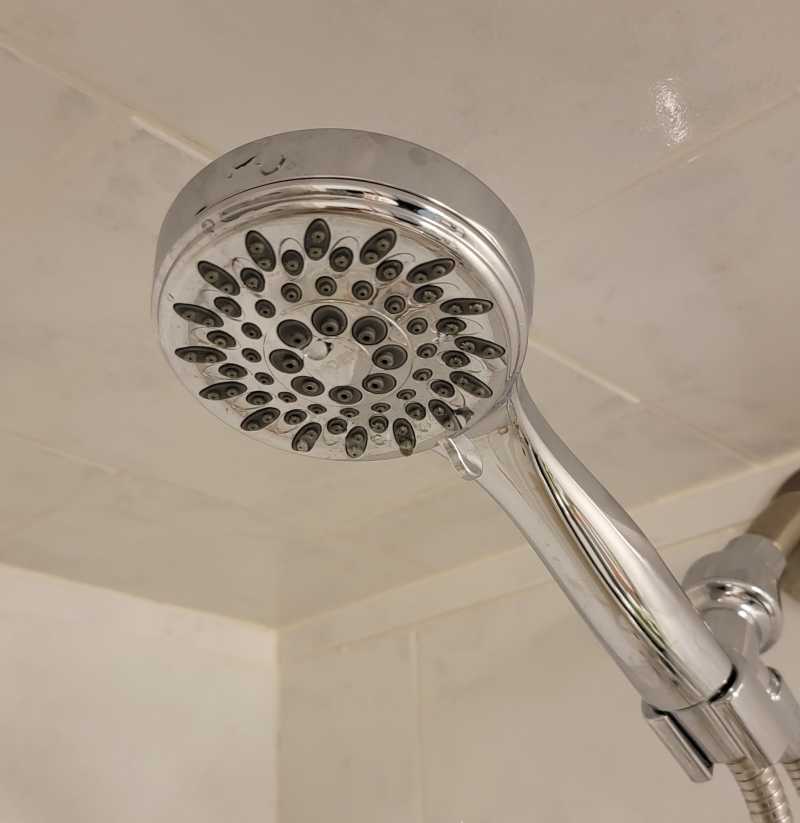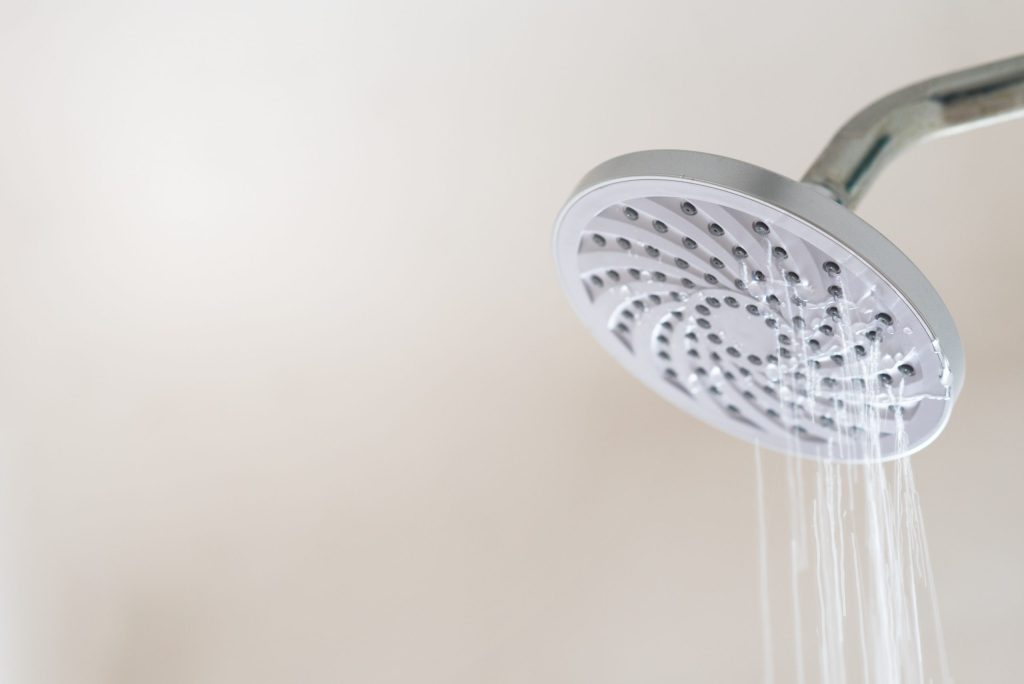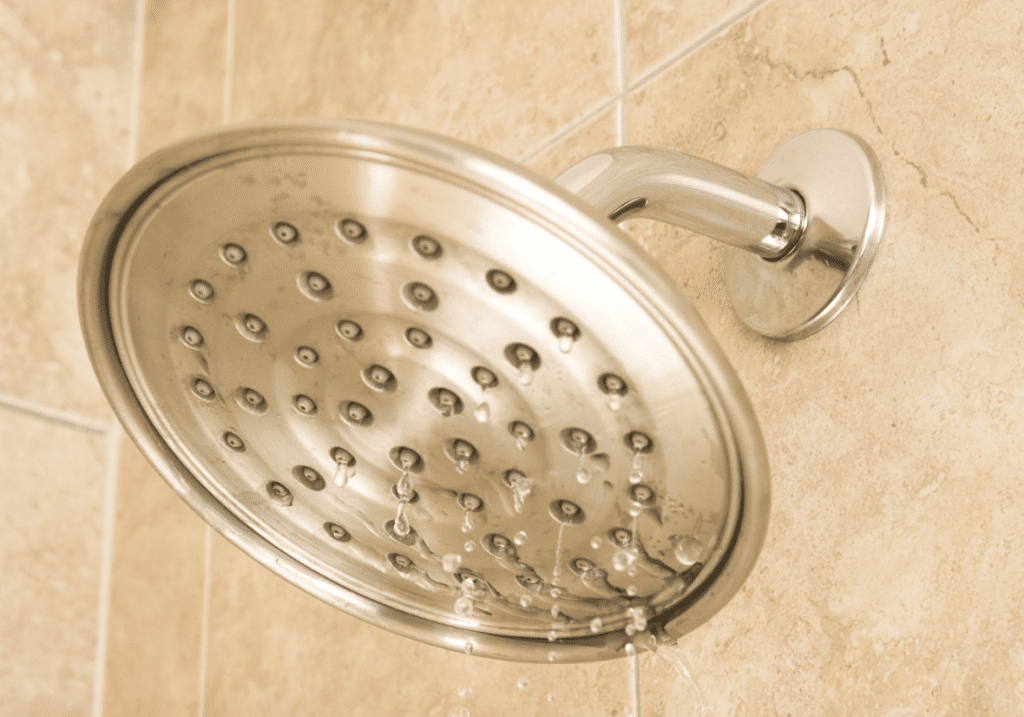Imagine this scenario: you’ve just finished a refreshing shower, and as you reach to turn off the water, you notice something curious – the shower head is still dripping.
You might start to wonder, is this normal? Should I be concerned?
In this article, we’ll explore the common occurrence of shower heads dripping after showers and shed some light on whether it’s something you should worry about.
So, grab a towel, and let’s dive into the world of shower head mysteries!
Table of Contents
Reasons why a shower head may drip after a shower
Worn-out or deteriorated seal
One of the possible reasons why your shower head may be dripping after you take a shower is a worn-out or deteriorated seal. The seal, located inside the shower head, prevents water from leaking out when the shower is turned off.
Over time, this seal can become worn or damaged, leading to water leakage. If you notice water dripping from the shower head even after it’s been turned off, a worn-out seal could be the culprit.
The buildup of mineral deposits
Another common reason for a dripping shower head is the buildup of mineral deposits. Hard water, which contains high levels of minerals such as calcium and magnesium, can leave behind deposits on the internal components of the shower head.
These deposits can block the flow of water and cause leaks. If you live in an area with hard water, it’s essential to regularly clean your shower head to prevent mineral buildup and potential dripping.
Loose or damaged components
Sometimes, a dripping shower head can be attributed to loose or damaged components. Over time, the connections between the shower head and arm can become loose, causing water to leak out.
Additionally, the internal components of the shower head, such as the spray nozzles or the swivel ball, can become damaged, leading to water leakage. Check for loose or damaged parts and tighten or replace them if necessary.
Problems with the diverter valve
The diverter valve controls the flow of water in your showerhead. If the diverter valve is malfunctioning or worn out, it may not fully close after you finish showering, resulting in water dripping from the shower head.
Inspect the diverter valve for any signs of damage or wear, and consider replacing it if necessary.
Issues with the water pressure
In some cases, the water pressure in your home may be too high, causing your shower head to drip after showering. High water pressure can strain the shower head’s internal components, leading to leaks. Consider installing a pressure regulator or adjusting the water pressure to prevent excessive pressure and potential dripping.
Faulty shower head design
Occasionally, a dripping shower head can be attributed to a faulty design. Certain shower heads may have a flawed design that doesn’t effectively prevent water leakage. If you’ve ruled out other causes and your shower head continues to drip, it may be due to its design. Consider replacing the shower head with a model known for its reliability and effective water sealing.
Clogged or blocked shower head
A clogged or blocked shower head can also lead to dripping. Over time, minerals, debris, and sediment can accumulate inside the shower head, obstructing the flow of water and causing leaks. Regularly cleaning your shower head can help prevent clogs and maintain optimal water flow.
Damaged or deteriorated O-ring
The O-ring is a small rubber ring located inside the shower head that helps create a watertight seal. If the O-ring becomes damaged or deteriorated, it can cause water to leak from the shower head. Inspect the O-ring for any signs of wear or damage and replace it if necessary.
Excessive water pressure
High water pressure can not only cause issues with the shower head components but can also lead to leaks. If your water pressure is consistently above normal levels, it can stress the shower head’s internal parts, leading to leaks. Consider installing a pressure regulator or consulting with a professional plumber to adjust the water pressure to a safe level.
Leaking shower pipe
A less common but possible cause of a dripping shower head is a leaking shower pipe. If there is a leak in the pipe that connects to the shower head, it can lead to water dripping from the shower head. Inspect the shower pipe for any signs of leakage and consult a professional plumber to address the issue if necessary.
Steps to fix a dripping shower head
Identify the cause
To fix a dripping shower head, you first need to identify the underlying cause of the leakage. This could be a worn-out seal, mineral buildup, loose or damaged components, a faulty diverter valve, high water pressure, or any other potential cause. Carefully inspect your shower head and its components to determine the cause.
Replace the worn-out seal
If a worn-out seal is the culprit behind your dripping shower head, it’s crucial to replace it. Most shower head seals can be easily replaced by unscrewing the shower head and replacing the old seal with a new one. Consult the manufacturer’s instructions or a professional plumber for guidance if needed.
Clean the shower head
If mineral buildup is causing your shower head to leak, a thorough cleaning may be all that’s needed. Remove the shower head from the shower arm and soak it in a solution of water and vinegar to dissolve any mineral deposits. Use a soft brush or toothbrush to scrub away any remaining residues. Rinse the shower head thoroughly and reattach it to the shower arm.
Tighten or replace damaged components
If you discover any loose or damaged components when inspecting your shower head, tighten them if possible or replace them with new ones. This may involve tightening connections, replacing worn-out spray nozzles, or repairing the swivel ball. Pay close attention to any signs of damage or wear and address them accordingly.
Check and fix the diverter valve
Inspect the diverter valve to ensure it is functioning correctly. If it is damaged or worn out, it may need to be replaced. Consult the manufacturer’s instructions or seek assistance from a professional plumber to fix or replace the diverter valve properly.
Adjust the water pressure
If high water pressure is causing your shower head to drip, consider installing a pressure regulator to stabilize the water pressure. A pressure regulator will help ensure that the water pressure remains within a safe and optimal range, reducing the likelihood of leaks.
Replace the shower head
If you’ve exhausted all other repair options and your shower head continues to drip, it may be time to replace it. Look for a replacement shower head that has good customer reviews and is known for its reliable sealing capabilities. Consider choosing a shower head that has anti-drip mechanisms built-in for added assurance.
Clear any blockages
If your shower head is clogged or blocked, disassemble it and clean out any debris or sediment that may be causing the blockage. Soak the shower head in a vinegar and water to dissolve mineral deposits. Use a small brush or toothpick to remove stubborn clogs, ensuring the water can flow freely through the spray nozzles.
Replace the O-ring
If you suspect that a damaged or deteriorated O-ring is causing the dripping, carefully remove the existing O-ring and replace it with a new one. Be sure to choose an O-ring that is the appropriate size and material for your shower head to ensure a proper seal.
Consult a professional plumber
If you are unable to identify or fix the cause of your dripping shower head, it may be best to seek the expertise of a professional plumber. They will have the knowledge and experience to diagnose and resolve the issue effectively and efficiently.
How to prevent a shower head from dripping
Regular maintenance and cleaning
Regularly clean your shower head to prevent mineral buildup and potential blockages. Use vinegar, a soft brush, or a toothbrush to remove any deposits or residues that may accumulate over time. Regular maintenance and cleaning can help maintain the optimal functioning of your shower head and reduce the likelihood of dripping.
Avoid excessive water pressure
Monitor and adjust your home’s water pressure to ensure it remains within the recommended range. High water pressure can strain your shower head unnecessarily and increase the likelihood of leaks. Consider installing a pressure regulator to help control and maintain the water pressure at a safe level.
Use a water softener
If you live in an area with hard water, consider using a water softener to reduce the amount of minerals that can accumulate in your shower head. A water softener works by removing calcium and magnesium ions from the water, preventing mineral buildup and potential dripping.
Replace shower heads with anti-drip mechanisms
When choosing a new shower head, opt for models that have anti-drip mechanisms built-in. These mechanisms are designed to prevent water from leaking out of the shower head when it is turned off, reducing the likelihood of post-shower dripping.
Properly install the showerhead
Ensure your shower head is installed correctly to minimize the risk of leaks. Follow the manufacturer’s instructions carefully and use any included washers or gaskets to create a watertight seal. If you are unsure about the installation process, consult a professional plumber.
Inspect and replace damaged parts
Regularly inspect your shower head and its components for any signs of damage or wear. Address any issues promptly by tightening connections, replacing worn-out parts, or seeking professional help. Timely maintenance and replacement of damaged parts can prevent dripping and prolong the lifespan of your shower head.
Address leaking pipes
If you suspect a leaking pipe is causing your shower head to drip, it’s essential to address the issue promptly. Leaking pipes can cause significant water damage and should be repaired or replaced by a professional plumber to prevent further complications.
Consider using a drip tray or mat
To prevent water from dripping onto the bathroom floor, consider using a drip tray or mat beneath the shower head. These devices can catch any drips or leaks, preventing potential slips or water damage. Regularly empty the tray or mat to maintain cleanliness and prevent mold or mildew growth.
Stay updated with the latest shower head technology
As technology advances, so does shower head design and functionality. Stay informed about the latest advancements in shower head technology, such as improved seals, anti-drip mechanisms, and water-saving features. Upgrading to a newer model with enhanced features can help prevent dripping and enhance your shower experience.
Be mindful of water wastage
Lastly, be mindful of water wastage and work to conserve water whenever possible. Turn off the shower when soaping or shampooing, consider taking shorter showers, and repair any leaks promptly. Conserving water not only helps prevent dripping but also contributes to environmental sustainability.
Conclusion
While it may not be customary for a shower head to drip after a shower, it is a common issue that can be resolved. By identifying the cause, following the appropriate steps for repair, and taking preventive measures, you can effectively fix a dripping shower head and ensure a leak-free shower experience.
Regular maintenance, proper installation, and staying updated with shower head technology are all vital in preventing future dripping and maintaining the functionality and longevity of your shower head.
Remember, if you encounter any difficulties or are unsure about any aspects of the repair process, consult a professional plumber who can provide expert guidance and assistance. Happy showering!

